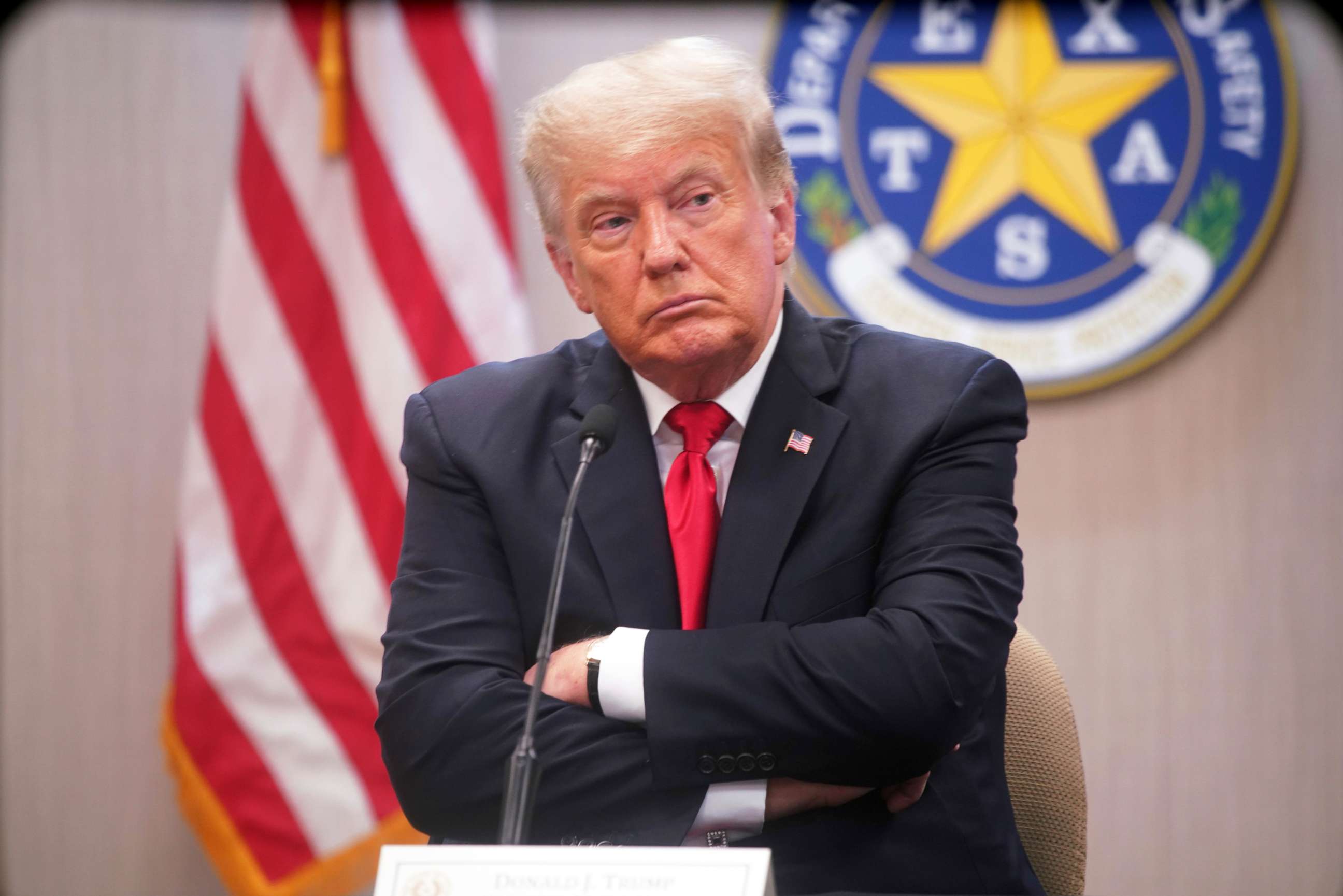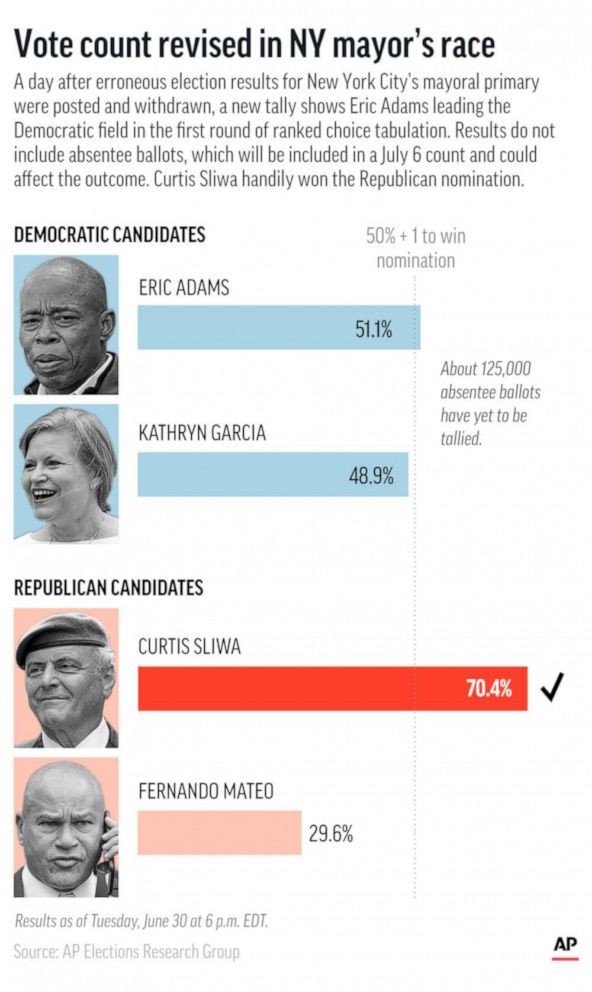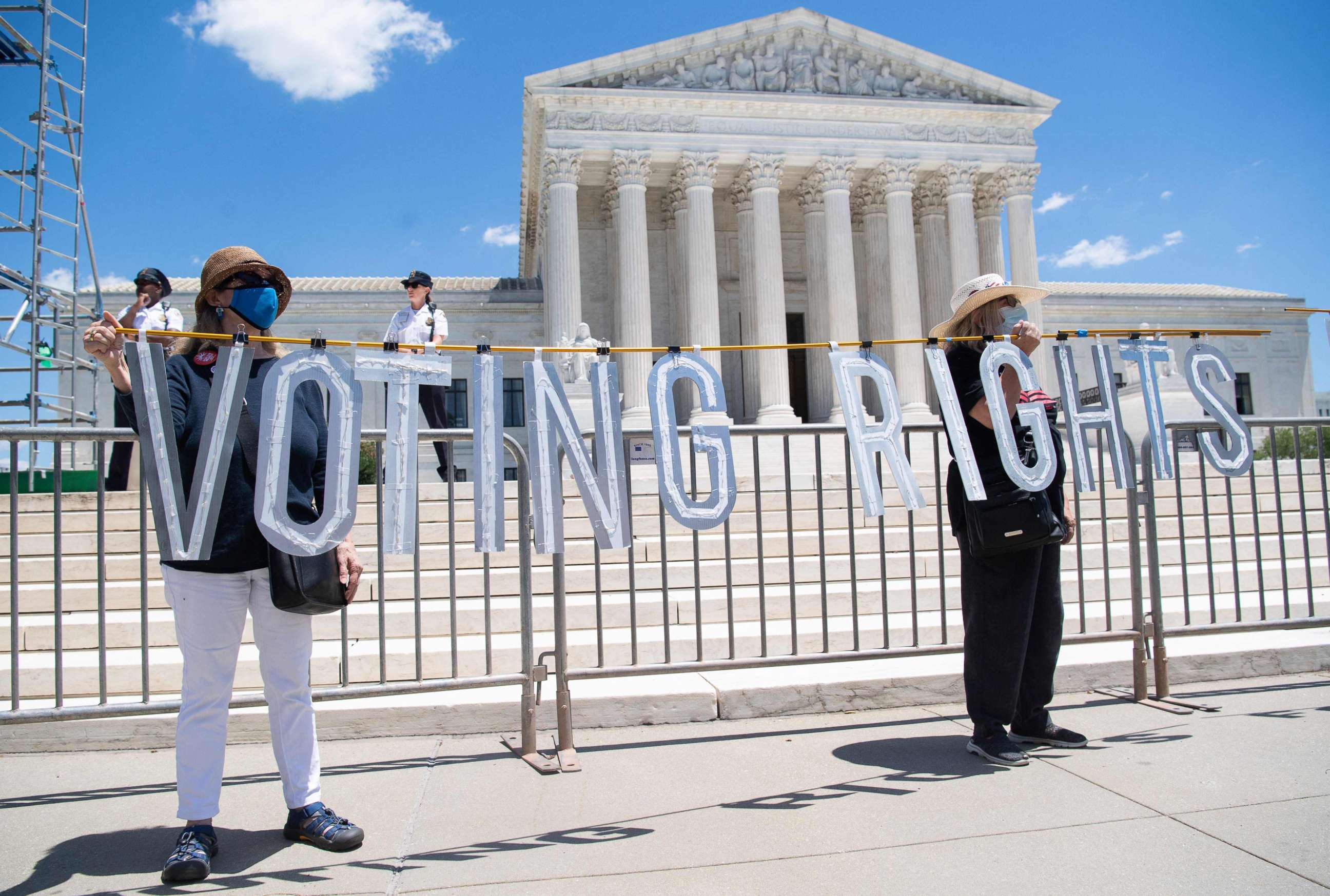Legal squeeze on Trump passes new threshold: The Note
The charges are the most substantial step in the extensive investigations.
The TAKE with Rick Klein
It's a day former President Donald Trump's political foes have long waited for -- and it's not even close to the end of this story.
Charges against the Trump Organization and its chief financial officer, Allen Weisselberg, are expected to be unsealed Thursday afternoon, after a special grand jury moved to indict both entities, ABC News' Aaron Katersky reported.
The charges, which Trump dismissed as "nonsense" on Wednesday, make up the most substantial step in the extensive investigations of Trump's finances being conducted by prosecutors in New York. Even this, though, could be most important for the clues about what might come next.
We're well past the point of political handicapping around what might hurt Trump politically. Consider that hours before the long-expected news broke, only two Republicans joined Democrats in voting for a House select committee to investigate the Jan. 6 Capitol siege.

Earlier that same day, Trump was able to call out some 32 House Republicans who were apparently attending an event he was holding in conjunction with his border visit in Texas -- where Trump repeated his lies about the election. Trump has also pre-butted the expected charges with familiar claims of liberal-run "witch hunts."
Still, the moves solidify and formalize the legal jeopardy the former president, his family and close associates potentially face. The investigations being conducted by the attorney general's office in New York and the Manhattan District Attorney have gone far deeper than any initial indictments might indicate -- a fact that's well-known to the president's associates.
One school of thought suggests that a legal squeeze may make it more likely that Trump runs for president again, giving him something of an offensive political strategy even as he plays -- and pays for -- a thorough legal defense.
But the entities now circling Trump world are not under his control and don't have the same kinds of political minefields to navigate as even the Biden Justice Department. Trump likes to talk about himself as counter-puncher, yet these blows could be harder than usual to return.
The RUNDOWN with Averi Harper
In the drawn-out Democratic New York mayoral primary, the key to ending the weeks-long wait for a winner will be absentee and affidavit votes.
The fiasco that was the scheduled release of the first unofficial ranked-choice vote tabulation has been remedied for now. On Wednesday, the Board of Elections put out updated numbers, subtracting the dummy test votes that were mistakenly included in the count Tuesday.

The outcome is still pretty much the same: Brooklyn Borough President Eric Adams leads and Sanitation Commissioner Kathryn Garcia comes in at a close second. Both have filed petitions in court, calling for the BOE to preserve ballots and correct any errors in the count.
But there are still more than 125,000 absentee ballots to be added to the count, and that won't happen until July 6.
The snafu Tuesday is more illustrative of continued missteps and incompetence within the city's BOE than the effectiveness of ranked-choice voting. The system has been used in jurisdictions across the country without major incident.
Ranked-choice voting advocates argue that waiting a few weeks is a small price to pay in a city where a runoff election would have cost millions of dollars.
The TIP with Alisa Wiersema
The Supreme Court is slated to issue its last two decisions of the current term Thursday and the stakes are high for voting rights in the context of the court's new conservative majority.
As Republicans in state legislatures across the country continue their push to revise election laws, the court's ruling on Brnovich v. Democratic National Committee will be the biggest voting rights decision in nearly a decade. As reported by ABC News' senior Washington reporter, Devin Dwyer, the ruling will further decide how those new changes should be judged under federal civil rights law.

The case also offers a historic test of the Voting Rights Act of 1965, which bans racial discrimination in voting and outlines standards for identifying when it exists.
At the root of the case are two voting rules in Arizona that the DNC says violate the Voting Rights Act. One rule says ballots cast in the wrong precinct should be tossed out and the other bans third-party ballot collections. Democrats say the rules discriminate against Native American, Latinx and African American voters, citing concerns with postal logistics among those communities for the mail-voting heavy state.
ONE MORE THING
A special grand jury in Manhattan has voted to indict Trump's namesake firm and its chief financial officer Allen Weisselberg, sources familiar with the matter told ABC News. The charges contained in the indictment are expected to be unsealed Thursday afternoon, the sources said, when Weisselberg and a representative of the Trump Organization are due to appear in court. https://abcn.ws/3yfvpTP
THE PLAYLIST
ABC News' "Start Here" podcast. Thursday morning's episode features ABC News Chief Legal Analyst Dan Abrams, who breaks down the Pennsylvania Supreme Court's decision to overturn Bill Cosby's sexual assault conviction. Then, we get reaction from Cosby accuser Patricia Leary Steuer. And ABC News Political Director Rick Klein explains why ranked-choice voting is once again under the microscope following a ballot counting mix up in the New York City mayoral primary. http://apple.co/2HPocUL
WHAT YOU NEED TO KNOW TODAY
Download the ABC News app and select "The Note" as an item of interest to receive the day's sharpest political analysis.
The Note is a daily ABC News feature that highlights the key political moments of the day ahead. Please check back tomorrow for the latest.




